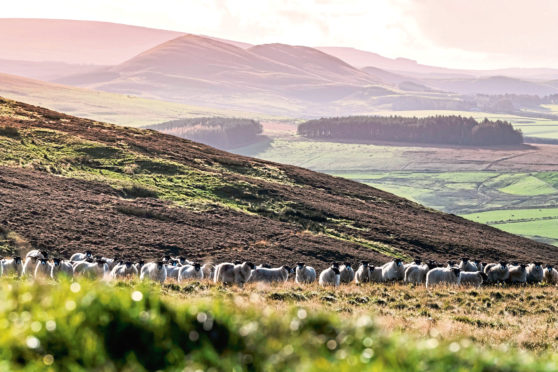The Scottish Parliament’s backing for tough new climate change targets “ramps up” the need for a step change in how Scottish agriculture is supported and how agricultural practices are undertaken, says NFU Scotland (NFUS).
The union was commenting after MSPs backed a number of significant amendments to the Climate Change (Emissions Reduction Targets) (Scotland) Bill, including setting a new interim target of a 75% cut in emissions by 2030, ahead of achieving net-zero emissions by 2045.
“To achieve the increasingly stretching targets in the bill, whilst maintaining a profitable Scottish agricultural industry, will need co-operation from all stakeholders and Scottish Government support,” said NFUS president Andrew McCornick.
“It is important … that we listen to the recommendations of the Committee on Climate Change (CCC) on whether the 2030 target is achievable and prioritise science in any decision-making process.
“Even reaching a 75% reduction by 2030 ramps up the need for a step change in how Scottish agriculture is supported and how agricultural practices are undertaken – and sooner rather than later as we’re only a decade away.”
While committing the country to net-zero emissions by 2045, five years earlier than is required at a UK level, the Scottish Government is to establish an agricultural modernisation fund to aid investments in agricultural mitigation measures.
It has also backed the idea of a whole-farm approach being applied to accounting for emissions, a move designed to allow for the reduction in whole-farm greenhouse gas emissions through the use of various measures.
NFUS is supportive of both measures with Mr McCornick stating that the agricultural modernisation fund could be the key to delivering the new targets, enabling agriculture to continue responding positively to the Scottish Parliament’s plan. As for the whole-farm approach idea, he added: “This is something NFU Scotland has long supported, with many feeling that farming’s full contribution to mitigating climate change has been routinely undervalued.”
The union has made it clear, however, that farmers are not prepared to shoulder all Scotland’s climate change responsibilities on their own.
“We will look to work closely with the Scottish Government in delivering on our climate change commitments and we look to other sectors, like transport, business and industry, delivering on their part of the deal as well,” said Mr McCornick.
